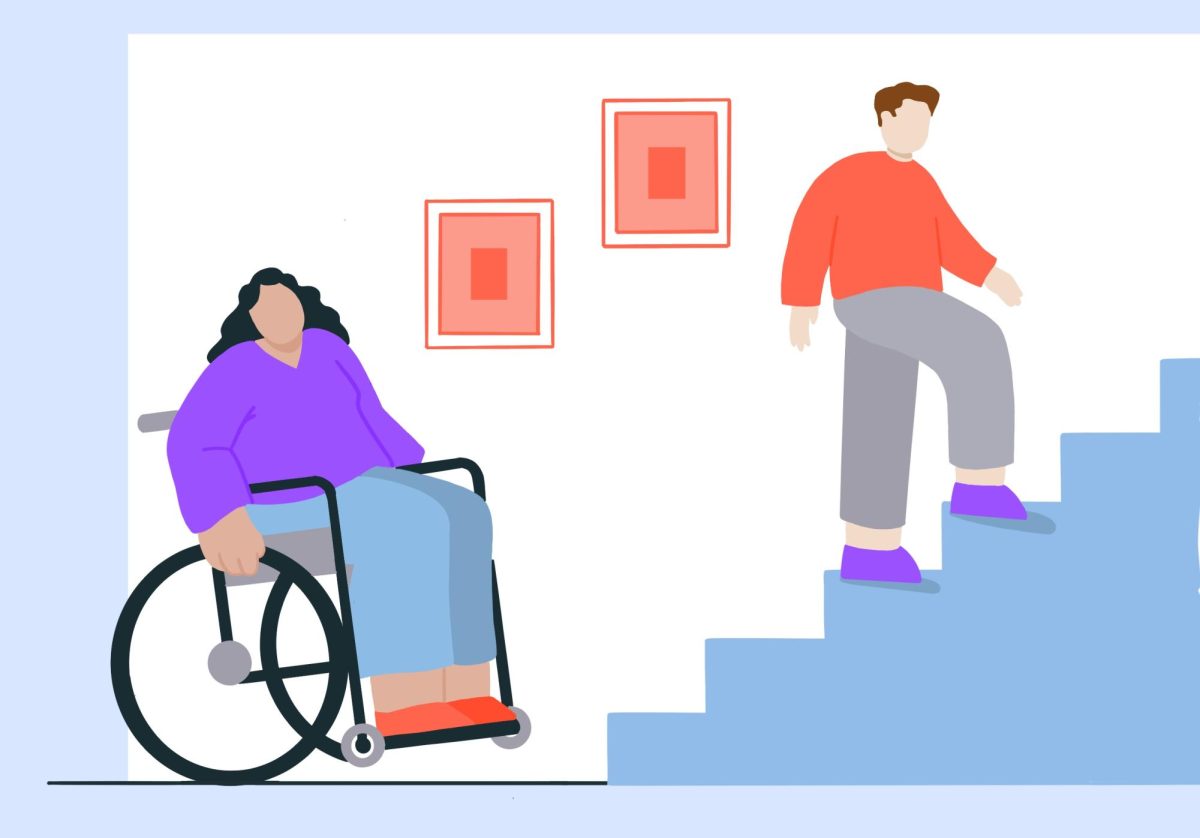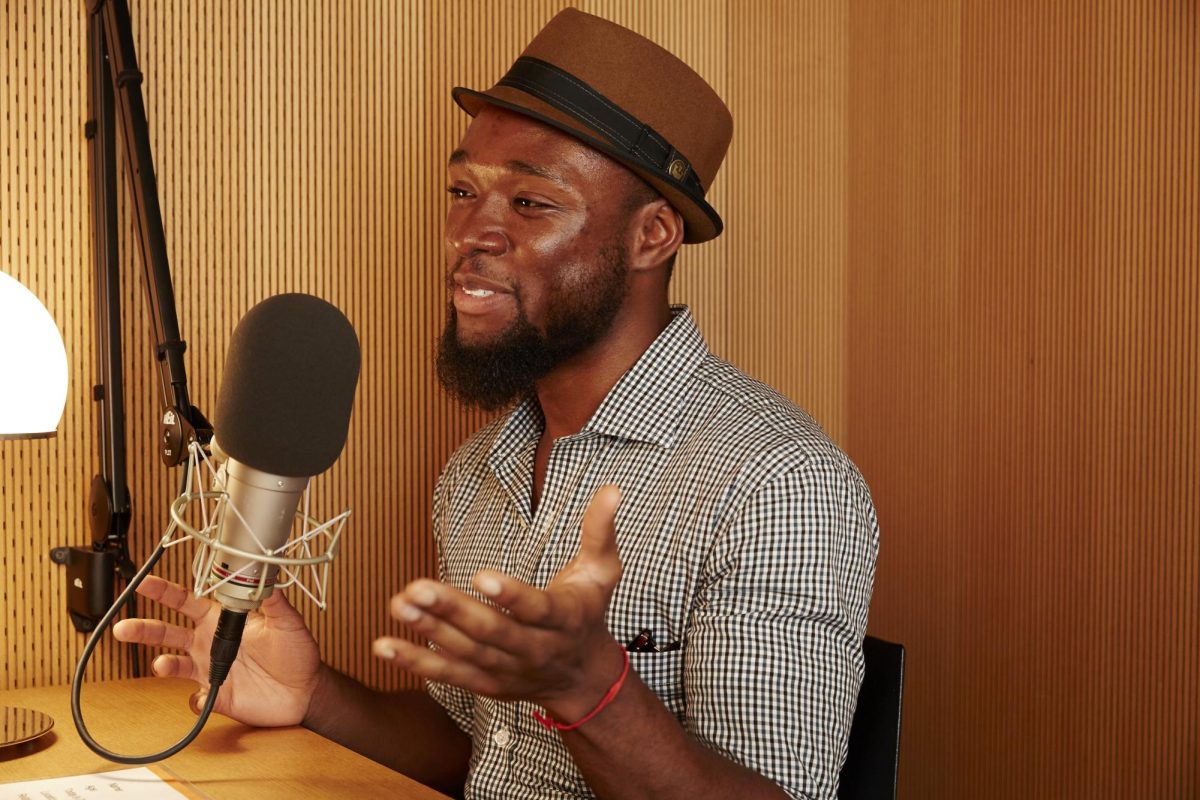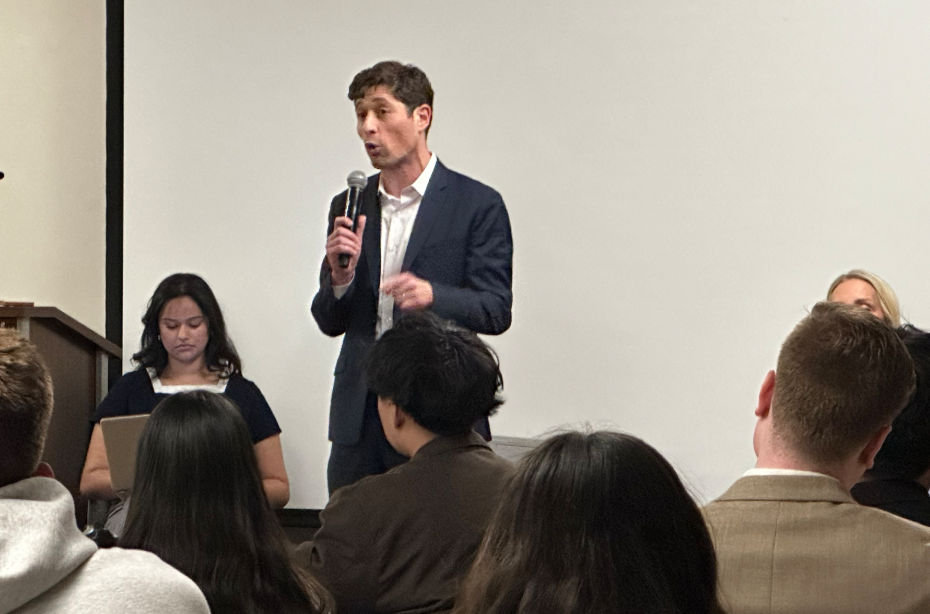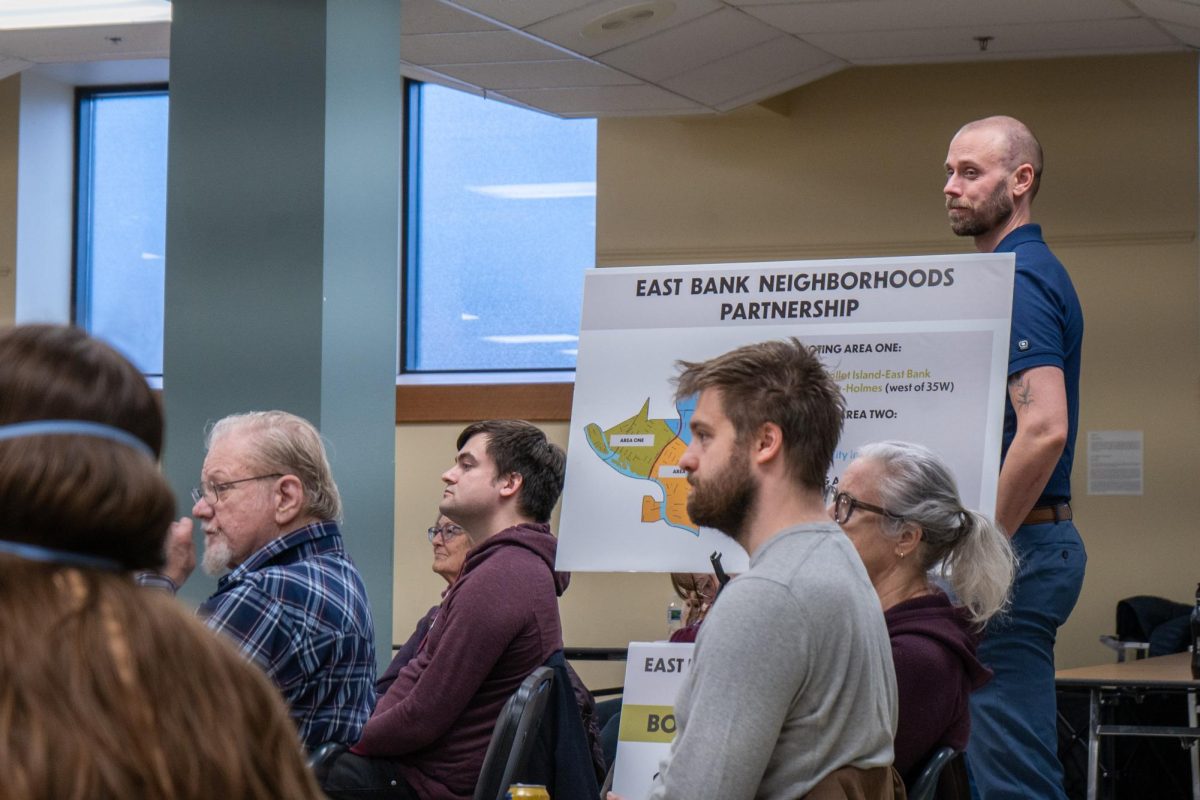Madison Rubenstein, who has disabilities that make it challenging to move and carry objects, said their conditions make operating their small business extremely difficult. Rubenstein said without physical help, their business would be at risk.
While they developed some disabilities as a kid, later in life they were diagnosed with Ehlers-Danlos syndrome, a condition which weakens their muscle tissues.
“There’s certain things about my business that I was able to do physically by myself that I am no longer able to do,” Rubenstein said.
For the 11% of Minneapolis residents who are disabled like Rubenstein, employment fears are constant.
The unemployment rate for people with disabilities in Minnesota is around 7%, double the rate for people without disabilities, according to the Minnesota Council for Disabilities.
Rubenstein, whose work revolves around art, said they use art as an avenue to communicate and express their feelings.
“The motivation is the same as it was when I was a little kid. It’s a language for me to express myself. It’s a space for me to process difficult feelings,” Rubenstein said.
Rubenstein said the state helped her small business through the Employer Reasonable Accommodation Fund, which allowed her to hire a friend to move canvases and lift heavy equipment into their car.
Government offers some relief, though issues persist
Rubenstein said economic setbacks remain. They have been unsuccessful in trying to gain social security disability since 2018.
Rubenstein said the process can be extremely time-consuming, especially without the financial security that social security disability would provide. Rubenstein’s case was dropped right before they were about to plead to a judge.
“I couldn’t get an answer to why I couldn’t even speak to the person I was working with,” Rubenstein said. “They just said, ‘Sorry, you have to start over somewhere else.’”
To qualify for social security disability, a person must prove they have a disability and their income does not meet a specific cap. Rubenstein said gaining social security as an employed person with disabilities is difficult because while they make income, they do not have a consistent income.
“They try to kind of like shuffle you around and figure out what to do with you,” Rubenstein said.
Former Minnesota Department of Health employee Annika Grassl, who has mild cerebral palsy and low vision, said her disability forces her to rely on public transportation. Her job prospects are limited because if a job is not remote or accessible by public transportation, she has to look elsewhere.
“Even now as I’m looking for positions, I’m looking for mainly remote positions or things that I know I can easily get to,” Grassl said.
Grassl, who worked as a health equity communicator at the Minnesota Department of Health, said she is an outlier when it comes to people with disabilities facing challenges as she secured employment.
“There’s also a lot of lived experience of people who have not had jobs for 20 years or so, but then also who have been either underpaid, under-promoted and a lot of times people with disabilities are taken advantage of in jobs,” Grassl said. “Then also not given the opportunity to use their skills in a way that could really benefit an organization.”
A worker with a disability may be paid less than minimum wage if their disability or condition reduces their ability to do the work, according to the U.S. Bureau of Labor.
Grassl said the experience and education she’s gained motivate her to advocate for others like her.
“What really keeps me going is using my own experience to help others and then also knowing that I will find a position and I will find a position where I’m really valued and that I can survive,” Grassl said.
The Americans with Disabilities Act (ADA) is intended to protect people with disabilities from discrimination in areas like employment.
Minneapolis’ ADA Title I Coordinator Adrianne Wade said her office ensures ADA policies are enforced throughout the city’s offices. Wade added the city recognizing October as Disability Employment Awareness Month signals its ongoing commitment to ensuring access to jobs for people with disabilities.
“It’s just a personal passion of mine to make sure that we’re not discriminating with people because they add so much value, not only to the workplace but just to our society,” Wade said.
University offers accessibility guidance to students and employers
The University of Minnesota also has support systems for students who struggle with medical conditions or disabilities.
The Disability Resource Center (DRC) provides accommodations not only to students in classrooms but also to their employers via the University’s partnership with the UReturn service, University access consultant Todd Helmer said. UReturn is a designated office to support any employees with disabilities or medical conditions.
Helmer said the DRC’s consultants help guide students with disabilities to pursue accommodations both in their classrooms and employment.
“The consultant role really reflects the fact that we are not prescribing but we are engaging in this interactive process that is much more it can be reflective of those two different countervailing demands of the job,” Helmer said.
Interim DRC Director David Fuecker said consultants also help build students’ confidence in advocating for themselves in a workplace environment.
“They are discussing helping build skill for that student to set for self-advocacy all the way through school and with the hope that that is ingrained by the time they’re done with school,” Fuecker said.
Besides reaching out to students to work for the University, Helmer said UReturn and the DRC help connect students with resources outside of the University. Helmer added they do outreach all the way from orientation to graduation for all students.
“We have a presence on campus in many different areas including having helped with career services when they’ve had questions or even had opportunities for us to do outreach through like an educational opportunity,” Helmer said. “We’ve had access consultants working with the different career services offices as well.”
Deputy Commissioner at the Department of Employment and Economic Development (DEED) Evan Rowe said the department offers accessibility services for a spectrum of physical and cognitive conditions.
For visually impaired people, DEED will translate utility bills and other documents into braille or translate written materials into audio recordings, Rowe said.
“Our emphasis is on making sure that we can serve the individual in the way that is best for the individual,” Rowe said.
Rowe added the DEED also works with employers to help answer questions such as how to change a work environment to better fit someone’s accommodation needs or how to attract people to their workplace.
“We’ve gotten a much more nuanced and deep understanding of disability, that every individual is an individual,” Rowe said. “We work really hard to deliver people their services that don’t treat you as a kind of a catch-all category, but as a human being.”














